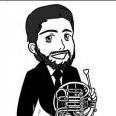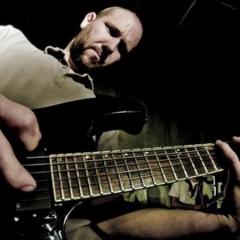Leaderboard
Popular Content
Showing content with the highest reputation on 08/05/2019 in all areas
-
Preface: I am a formally trained musician. Went through public school band from 6th grade through high school, got 3 undergrad degrees in music (education, horn performance, and classical composition), and am almost finished with a master's degree (classical and jazz composition). I finished my undergrad with 214 credit hours and am currently 23/31 hours through the master's degree. I am a professional performer (classical and jazz), and a high school band director, but have taught theory and private lessons and classes on guitar, bass and piano. I have performed in almost every genre that uses live performances, on many different instruments. I see many discussions about the importance of music theory, and honestly most of these discussions disappoint me, but not in the way you would think by the preface above. All musicians fall into one of two categories - Music theory is necessary, or Music Theory is unnecessary. There are no other categories, although there are subgroups. I'm going to start off by saying, that by far, modern music theory is one of the worst taught classes in the history of classes. I put it below most high school Spanish classes. If you compare the standard expected of music theory students to that of a standard biology or English class, it is almost laughably low. I don't know many classes where it is not only normal, but understood by the *teachers* of a class that half or more of your students are going to not learn the material. This is absolutely absurd. Further than this, I don't know of any creative art other than music where the system of organization used to understand it is emphasized so heavily as rules. Let's give an analogy to help this sink in. You're in an English class, studying Shakespeare. You're learning about the plays of Shakespeare, but it's communicated that the traits that were used in Shakespeare's style of writing are the rules that dictate how books are written, and if you don't follow them, you're wrong. Right off the bat, you should see some red flags with this. "But what about Earnest Hemingway? He breaks the rules here, does that mean he's not a real author?" "Yes. He broke the rules, so he doesn't write real books." This is about how music theory is approached by many teachers. If you see this, and understand that this is not what music theory is supposed to be, you'll see why almost all arguments against it fall apart really hard. So what is music theory? Music theory IS a form of analysis. It is a way to listen and analyze music and understand what's going on. It's a way to learn music, and a way to communicate music. Music theory IS NOT a bunch of "rules" that tell you how to write music. It IS NOT a way for classical musicians to point at things they don't like and say "this is worthless." If it is used that way, it's used very wrong. Music theory IS a way to compare styles of music to see what is similar and different, and be able to understand what makes an unfamiliar style of music relatable to styles you are familiar with. Music theory IS NOT tied to or directly related to sheet music. If you don't read sheet music, you are no less of a musician. Theory actually doesn't have much to do with notation on a fundamental level. You know how I mentioned I used to teach guitar classes to high school kids? When I taught guitar classes, I taught theory. But I didn't say "we're learning music theory today, here are the rules." It really was more like this: Let's listen to this Johnny Cash song. Let's learn it, do this now. Alright, how is it similar to <song we learned last week>? These chords here, are they the same as <other song>? Yes. This is called a 12-bar blues progression. Let's look at it. The class learned 25 songs in the next week. Because we had the framework of what a 12-bar blues progression was, and the theory behind it, we went from learning one song a week, chord by chord to 25. We learned 25 songs that used the 12-bar blues progression. This was music theory applied directly to understand music better. We then did a quick lesson on lyric form (the rhyme scheme and whatnot) of most 12-bar blue songs, and I had them write one. There was no lack of creativity here. They could write a song then teach it REALLY easily because everybody had the common language and framework. Further than this, in similar ways, my students could play in all 12 major AND minor keys. They could figure out how to finger chords they didn't know. For example, this chord is an Ab major 7th chord. How do you finger it without looking at a chord chart? They knew what notes were in that chord, and what do do with the strings to get that chord to happen, and then they remembered the fingering. This is what music theory is If you're looking at my description and saying "But you didn't teach music theory." You're wrong. I gave them the same written test that I gave the students I was just teaching theory to. They did just as fine as guitar students as the ones who were specifically theory students. Test scores showed very little deviation when compared. This is how music theory is supposed to be. Music theory is the inner workings of music, and why things sound the way they do. Music theory is the reason I can hear a song I've never heard before, and learn it in a short period of time. Any time you hear a song and go "That's the same chord progression as <different song>" you're using theory. If you write music AT ALL, you're using music theory. You may not think that's what you're doing, but that's what you're doing. If you know that *this chord* followed by *this chord* sounds good, but don't know what those chords are called, you're still using theory. If you know that writing a song using the form "Intro, verse, chorus, verse, chorus, bridge, chorus, chorus" makes your song make sense, you're using theory. All musicians who produce music are using theory whether they know it or not. The advantage of knowing theory is that you can talk about music in a consistent way and help others understand either the music you write, or the music you like. If you hear something I write, and really like it, I can tell you EXACTLY what I did to create that sound and where I got that chord progression/texture from, so you can learn more about it. You know how I mentioned that I have degrees in composition? I have a degree in composition, and am almost done with another one. I took 14 theory classes in my undergrad. The same 4 intro classes, and 10 specialized classes (such as jazz theory, 20th century analysis, 18th century counterpoint, and electronic music). In all of these classes, the professor (a composer) would ALWAYS have us listen to the piece before doing any theoretical analysis on it. It didn't matter if it were by Bach from 1730, or if it were by Charlie Parker in 1950. We listened to it and thought about how it was similar and different to what we knew. The analysis ALWAYS fit what the music was doing. If we were analyzing a Bach chorale, we looked at it using the style tendencies and traits that defined that style. If we were analyzing a Charlie Parker tune, we looked at it using the style tendencies and traits that defined that style. We didn't do this with one set of rules and traits for both styles, unless they were similar enough where we could do that and actually make sense of that. As a composition student in lessons, if I wrote a piece in the style of Glenn Miller and his big band, we would look through Glenn Miller sheet music and listen to the charts to find out "Why does it sound the way it does, and what can you do to get that kind of sound in your pieces?" If I wrote a piece in the style of modern, 20th century classical music, we would analyze pieces of classical music from the 20th century and find out why they worked. Then, when writing a piece, I could express myself in that style. The argument that music theory destroys your creativity is valid only if you're viewing music theory as a set of rules that you have to follow. If you view any creative adventure like that, your creativity will be stifled. However, if you view it as a series of tendencies and style traits that make music sound the way it does, it frees you to write in any style you want, authentically, and express yourself. As a composer, I write a lot of music that blends jazz, fusion, and classical. I write things I'm proud of and think are pretty creative. But they are that way because I know how to look at music I like and take things from it and use them to express myself. THIS IS THE WAY MUSIC THEORY SHOULD BE TAUGHT AND USED. THIS IS WHAT MUSIC THEORY IS AND WHAT IT IS SUPPOSED TO BE USED FOR. One little side note If you're using your knowledge of theory to say that somebody else is not a real musician, or they don't know what they're doing, or that music has rules, shame on you. You're giving formally trained musicians a bad name. Alternatively, if you are one of those people who brags about not knowing theory and tries to flex on the people who say you need to know theory, you're as big of an ass as they are. I hope that my little essay here has helped you understand a new perspective on music theory and why I feel the argument against it is not particularly valid in most cases.2 points
-
Just for the record, this isn't my arrangement @Liontamer. It would have way more 80s synth brasses if it was mine.1 point
-
.thumb.jpg.f98077b6fd51f6b897a7fd487af59377.jpg)
PRC395 - A Silent Star (Phantasy Star 2)
Silverpool64 reacted to TheVideoGamer for a topic
Must be. Dont think like that lol. I have a lot to thank for you running this Compo. It’s fun and allows me to share my love for VGM. If anything I’m too eager XD. Ill look forward to your entry eh?1 point -
hello ! here's my cover from the genesis game Devil Crash (also available on PC Engine as Devil's Crush) ! it's not submitted cause it's too close from the original source, but I'm proud to share with you this fabulous OST ! composer : Toshiaki Sakoda also available for free (download) on my bandcamp : https://jmabate.bandcamp.com/track/devil-crash-md-opening-main-table enjoy best regards jmabate1 point
-
Hey folks, there's a contest being held on a subreddit for covers of battle themes for games, so I decided to throw my lot in with this piece. Please enjoy!1 point
-
.thumb.jpg.f98077b6fd51f6b897a7fd487af59377.jpg)
MnP 104: Sonic Lost World - Tropical Coast Act 1
Mr. L reacted to TheVideoGamer for a topic
Bonus mix confirmed!1 point


